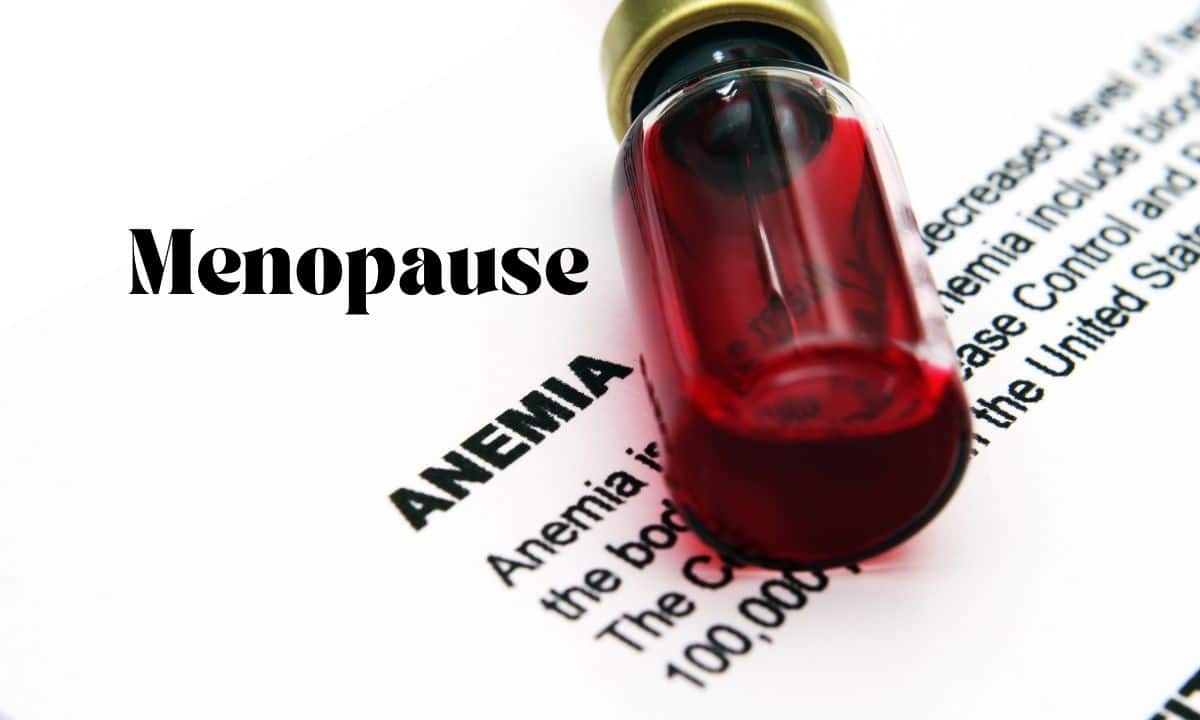The Link Between Menopause and Anemia: What You Need to Know
Are you menopausal and feel tired all the time? Do you have difficulty concentrating or focusing on tasks? Anemia may be the cause.
Table of Contents
ToggleAnemia is a condition in which your body does not have enough red blood cells or hemoglobin, which can affect how much oxygen is transported around your body. This can make you tired and weak and make it difficult to concentrate.
In this blog post, we will discuss menopause and anemia in detail and the link between them. We will also discuss the causes of anemia in menopausal women, focusing on iron deficiency anemia and how to correct it.
To discuss the causes of anemia in menopausal women, we must go through the different stages of menopause to get to the root cause.
Can Menopause Cause Anemia?
To answer this question, we will discuss the transition to menopause and the definition of menopause and postmenopause. The causes of anemia vary depending on the stage.
While many women think about menopause as something that happens in the blink of an eye, it is a long process with three distinct stages: perimenopause, menopause, and post-menopause.
Perimenopause occurs before menopause when your menstrual cycles start to become irregular. This stage can last for years, with the average being four years. Perimenopause is different from pre-menopause.
Menopause is the exact time that marks 12 months without a period.
Post-menopause occurs after menopause and is the stage in which you have not experienced a menstrual period for 12 months or more.
Anemia can occur during all three stages, but each stage has different causes.
Perimenopause and Anemia
During this stage, anemia is most commonly caused by heavy periods and a decrease in iron levels as the body transitions from regular menstruation to menopause.
Postmenopause and Anemia
There are different causes for iron deficiency anemia, including nutrition deficiencies, chronic disease, and bleeding in your intestines or stomach.
However, iron malabsorption is a common cause of iron deficiency in postmenopausal women.
Other Causes of Anemia at Any Stage in Life
There are various causes for anemia, including:
- Nutritional deficiencies
- Chronic diseases such as kidney failure and cancer
- Bleeding in your gastrointestinal tract (esophagus, stomach, or intestines)
- Heavy bleeding from injury or surgery
- Certain medications
Ensuring you get adequate iron through diet can help prevent anemia caused by iron deficiency. Other treatment options depend on the root cause of the anemia itself.
Symptoms of Anemia
Common symptoms include:
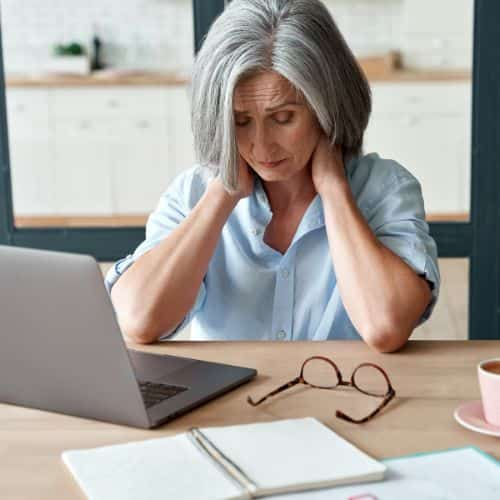
- Fatigue
- Weakness
- Pale skin
- Irregular heartbeats
- Shortness of breath
- Brittle nails (spoon shape)
- Unusual cravings for nonnutritive substances like dirt or ice.
- Dizziness or lightheadedness
- Cold hands and feet
- Headaches
Can Anemia Cause Menopause Fatigue?
Anemia can cause fatigue and weakness, and this can be one of the causes of fatigue in menopause.
Anemia occurs when the body does not have enough red blood cells or hemoglobin. The function of hemoglobin is to carry oxygen throughout the body.
When there are too few red blood cells in circulation, the brain and other organs do not get enough oxygen to function properly, leading to tiredness and exhaustion.
Fatigue due to anemia can range from mild tiredness to severe exhaustion, which makes it difficult for people to carry out their daily activities.
If you experience persistent fatigue without any clear reason why, you should consider getting tested for anemia.
However, there are other contributors to fatigue in menopause, such as poor sleep or inadequate diet.
How to Test for Iron Deficiency Anemia
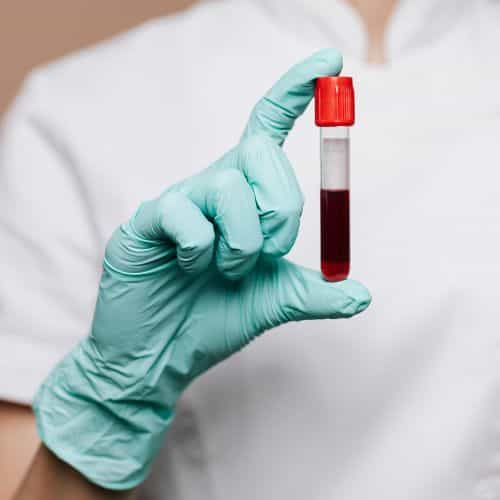
Testing for iron deficiency anemia involves a combination of a simple blood test and physical exam to identify any underlying causes.
If your tests show anemia, your doctor may prescribe an iron supplement and will work on improving the root cause of anemia.
Anemia Medical Treatment
Treatment for anemia depends on the cause.
For instance, if anemia is caused by iron deficiency, your doctor may recommend taking an iron supplement as directed. Your doctor will also likely recommend a diet containing iron and vitamin C.
Your doctor may also order further tests to identify any underlying medical conditions contributing to the anemia.
Iron Supplements
Iron supplements can help replenish the body’s iron stores. Your healthcare provider will recommend the right dosage for you. To replenish your iron stores, this dosage will likely be much higher than the recommended daily intake.
Vitamin C is also recommended because it helps absorb the body’s iron. For best results, you must consume both nutrients together.
You should take iron supplements with meals as they may cause stomach upset or nausea. Last, avoid taking iron supplements with foods that decrease absorption, such as milk or yogurt.
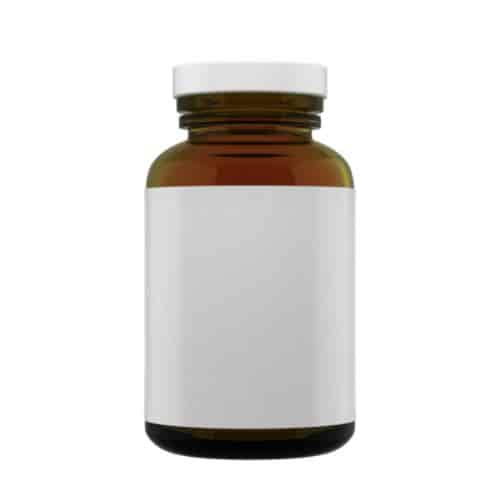
Treat Anemia with Iron-Rich Foods
If nutrition deficiency is the cause of the anemia, it can be treated with foods high in iron and vitamin C.
Vitamin C is important because it helps absorb iron better.
These foods will also help when the cause is not nutrition deficiencies, but in that case, the root cause also needs to improve for you to see results.
Iron Rich Foods
Good sources of iron include:
Animal-based foods:
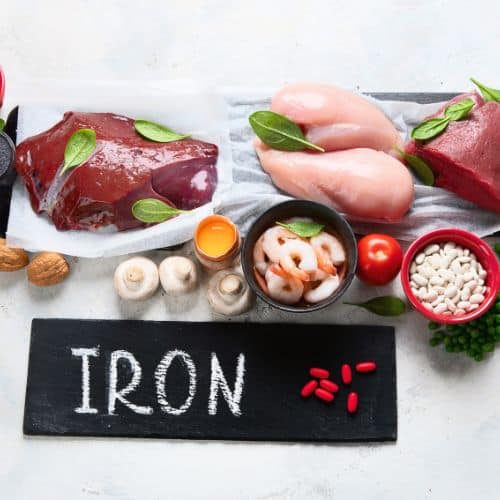
- Beef
- Lamb
- Veal
- Pork
- Beef liver
- Chicken
- Turkey
- Fish
- Shellfish
- Eggs
Plant-based foods:
- Green leafy vegetables (spinach, swiss chard
- Tofu
- Legumes (lentils, beans, chickpeas)
- Nuts
- Seeds (pumpkin, sunflower)
- Quinoa
- Dark chocolate
- Iron-fortified breakfast cereals
- Nuts
- Dried fruit
- Whole wheat pasta and bread
- Oats
- Tofu
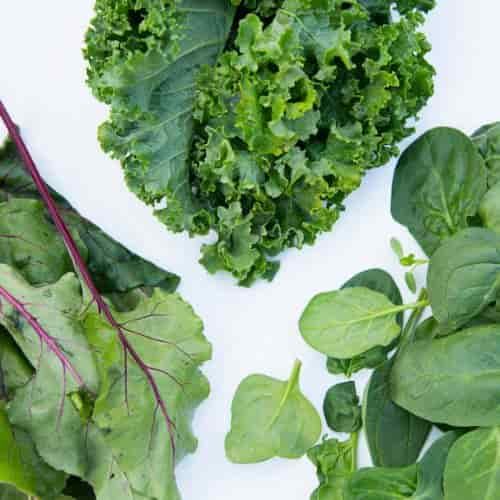
Foods High in Vitamin C
To improve absorption, it is recommended to eat foods high in iron with vitamin C. These include:
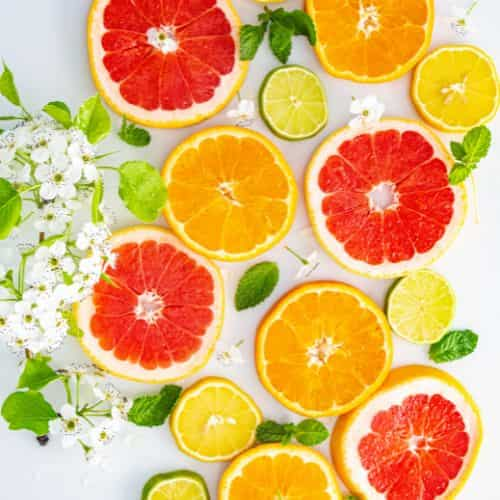
- Citrus fruits (oranges, grapefruits, lemons)
- Red and orange fruits and vegetables
- Green fruits and vegetables
How Much Iron Do You Need?
To maintain adequate iron levels, you need to consume the following:
- 18mg if you still have your period
- 8mg if you are postmenopausal
However, if you are iron deficient, you need higher amounts to replenish what has been lost and to maintain adequate iron levels.
Your doctor can help advise on how much supplemental iron will suit your needs.
Foods to Avoid When Eating Iron (or Taking Supplements)
Certain foods can interfere with the absorption of iron, so it is important to be aware of which foods should be avoided when consuming iron-rich foods or taking an iron supplement.
Dairy products, caffeine, and calcium supplements can decrease the body’s ability to absorb iron.
Additionally, phytates found in grains such as wheat bran and legumes can bind to dietary iron, making it unavailable for absorption.
Therefore, you should avoid consuming these foods with high-iron meals or supplements.
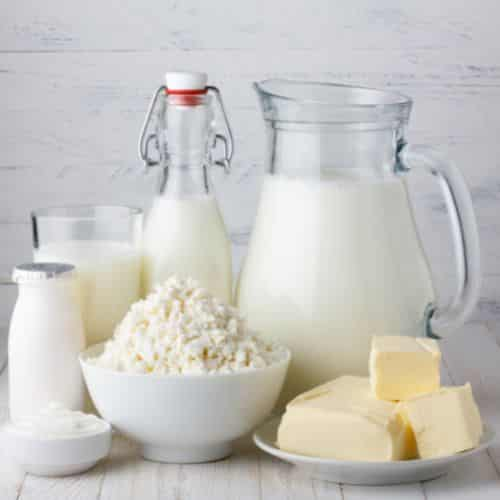
When to See a Doctor
If you suspect that you may be iron deficient, it is important to see a doctor. Seek immediate care if you have extreme fatigue, irregular heartbeats, or shortness of breath.
Also, seek care soon if you notice that your poop is bright red or black. Both are signs of gastrointestinal bleeding and can have serious consequences.
Iron deficiency is a common condition that is easily treated. However, it is always important to be proactive when it comes to health.
My Expert Opinion
Anemia can add a heavy burden to women already overwhelmed with other menopause symptoms.
The most important aspect of treatment is to identify the cause. A diet rich in iron and vitamin C is a powerful addition to any treatment and, in some cases, the only treatment you need.
Get a Printable Food List
Click here for a printable list of foods high in iron and vitamin C, along with foods that inhibit iron absorption.

Dr. Su-Nui Escobar, a Registered Dietitian/Nutritionist in Miami, FL, is dedicated to empowering women in perimenopause and menopause to live healthier, more satisfying lives.
With a doctorate in clinical nutrition from the University of North Florida, she has expertise in menopause and weight loss, including the unique challenges faced by those on weight loss medications.
Su-Nui’s passion for her field is evident in her previous role as the Academy of Nutrition and Dietetics spokesperson.

